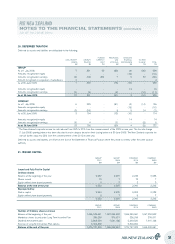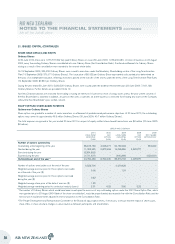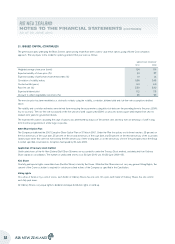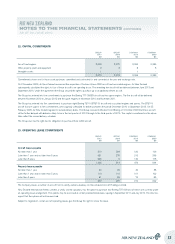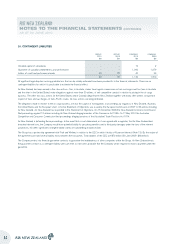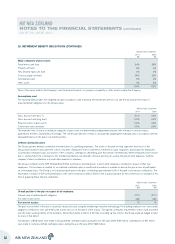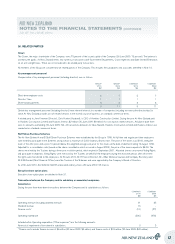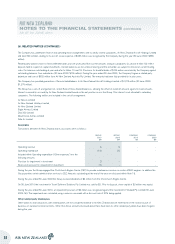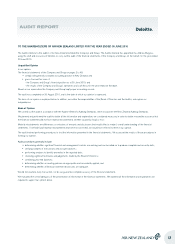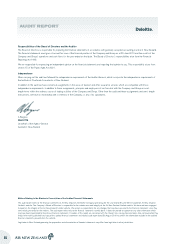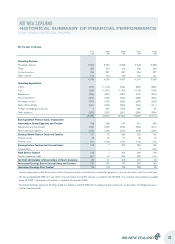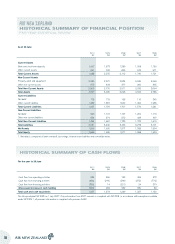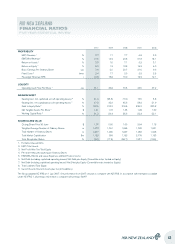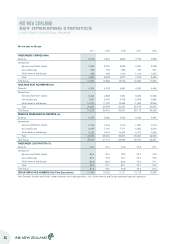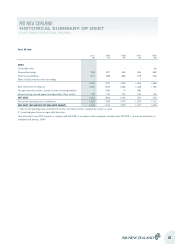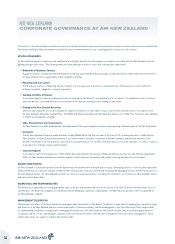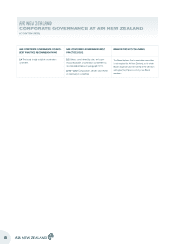Air New Zealand 2010 Annual Report Download - page 51
Download and view the complete annual report
Please find page 51 of the 2010 Air New Zealand annual report below. You can navigate through the pages in the report by either clicking on the pages listed below, or by using the keyword search tool below to find specific information within the annual report.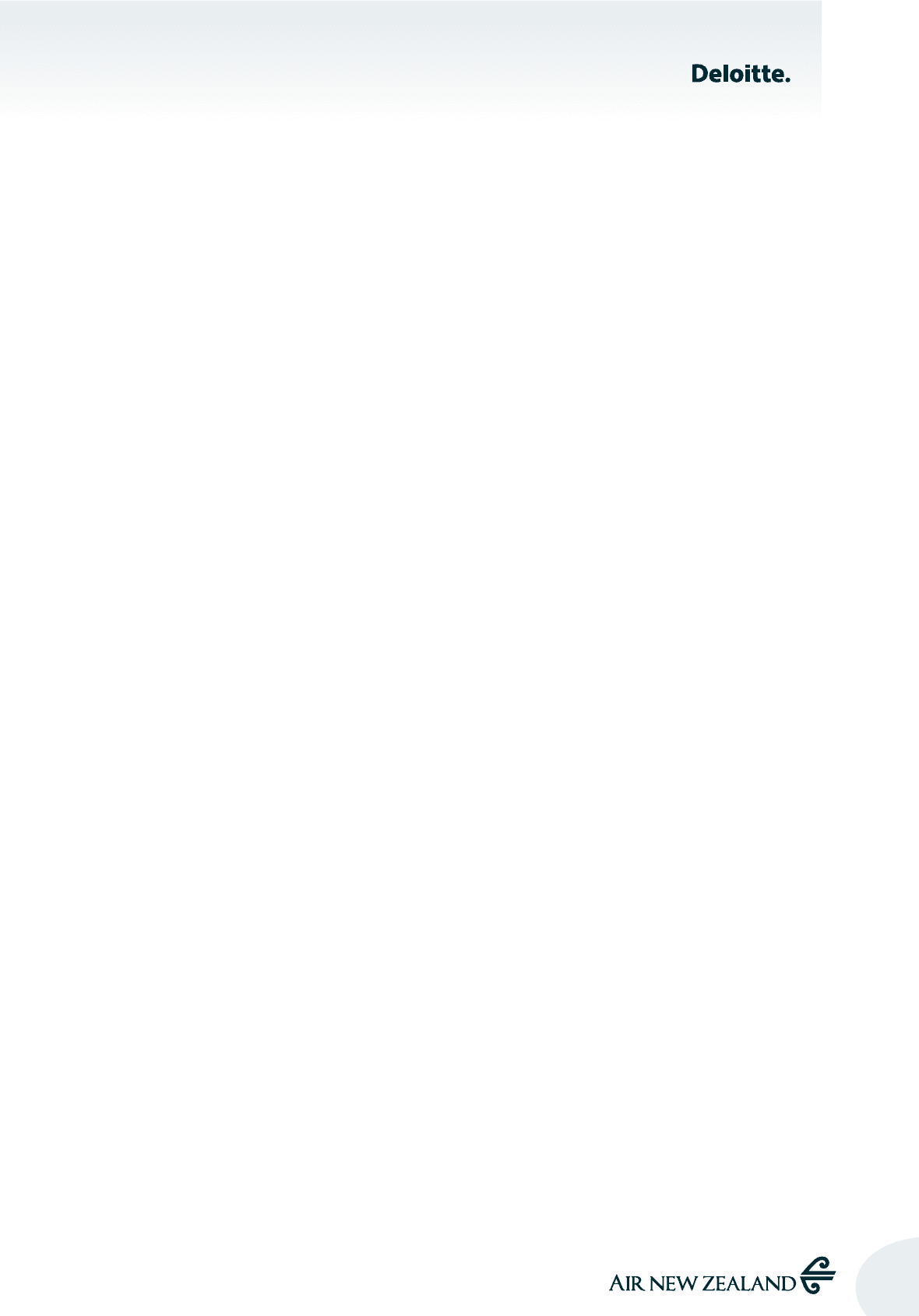
TO THE SHAREHOLDERS OF AIR NEW ZEALAND LIMITED FOR THE YEAR ENDED 30 JUNE 2010
The Auditor-General is the auditor of Air New Zealand Limited (the Company) and Group. The Auditor-General has appointed me, Andrew Burgess,
using the staff and resources of Deloitte, to carry out the audit of the financial statements of the Company and Group, on her behalf, for the year ended
30 June 2010.
Unqualified Opinion
In our opinion:
The financial statements of the Company and Group on pages 2 to 48:
• comply with generally accepted accounting practice in New Zealand; and
• give a true and fair view of:
- the Company and Group’s financial position as at 30 June 2010; and
- the results of the Company and Group’s operations and cash flows for the year ended on that date.
Based on our examination the Company and Group kept proper accounting records.
The audit was completed on 26 August 2010, and is the date at which our opinion is expressed.
The basis of our opinion is explained below. In addition, we outline the responsibilities of the Board of Directors and the Auditor, and explain our
independence.
Basis of Opinion
We carried out the audit in accordance with the Auditor-General’s Auditing Standards, which incorporate the New Zealand Auditing Standards.
We planned and performed the audit to obtain all the information and explanations we considered necessary in order to obtain reasonable assurance that
the financial statements did not have material misstatements whether caused by fraud or error.
Material misstatements are differences or omissions of amounts and disclosures that would affect a reader’s overall understanding of the financial
statements. If we had found material misstatements that were not corrected, we would have referred to them in our opinion.
The audit involved performing procedures to test the information presented in the financial statements. We assessed the results of those procedures in
forming our opinion.
Audit procedures generally include:
• determining whether significant financial and management controls are working and can be relied on to produce complete and accurate data;
• verifying samples of transactions and account balances;
• performing analyses to identify anomalies in the reported data;
• reviewing significant estimates and judgements made by the Board of Directors;
• confirming year-end balances;
• determining whether accounting policies are appropriate and consistently applied; and
• determining whether all financial statement disclosures are adequate.
We did not examine every transaction, nor do we guarantee complete accuracy of the financial statements.
We evaluated the overall adequacy of the presentation of information in the financial statements. We obtained all the information and explanations we
required to support our opinion above.
AUDIT REPORT
49


